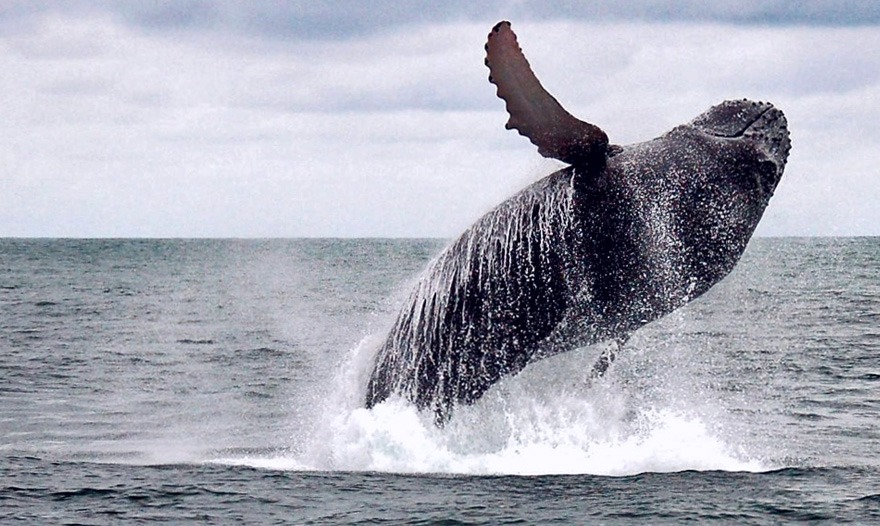Whale Watching in Cannon Beach, Oregon
 Whale Watching in Cannon Beach happens twice a year, in winter and spring.
Whale Watching in Cannon Beach happens twice a year, in winter and spring.
In the winter, the mighty mammals pass along the shoreline, heading from Alaska waterways to the lagoons of Baja California where mamma whales fatten up and welcome their newborns. About 20,000 are expected to pass during the last week of December. The whales will swim back up the coast starting in the spring.
The Oregon State Parks’ Whale Watching Spoken Here® program places trained volunteers at sites along the coast including nearby Ecola State Park, during the week December 27-31. With binoculars, you can also watch for whales from beachfront balconies at Tolovana Inn. Getting up to look out over the horizon is critical.
Whale watching tips
Whales are spotted when they rise to the surface and spout a plume of mist and vapor that can reach up to 15 feet in the air. Calm days are best for whale watching, as the spout can linger in the air for up to five seconds when there is little wind. Seas without white-capped waves make whale spotting easier. And, early daylight from a low angle that illuminates the lingering spout also helps. With your binoculars, keep an eye out for a spout. Once you have it spotted, just raise your binoculars to where it was and keep looking.
Whales typically spout three to five times, about 15-30 seconds apart, before making a deep dive of up to six minutes long.
Once spotted, keep their direction of travel in mind. Then, you will have it down in no time.
Tolovana Inn is a favorite destination for families at any time of year. Just a few easy steps to the sand, roomy oceanfront suites feature cozy fireplaces and private balconies with amazing views. The indoor saltwater pool is always inviting, along with the sauna or spa.

